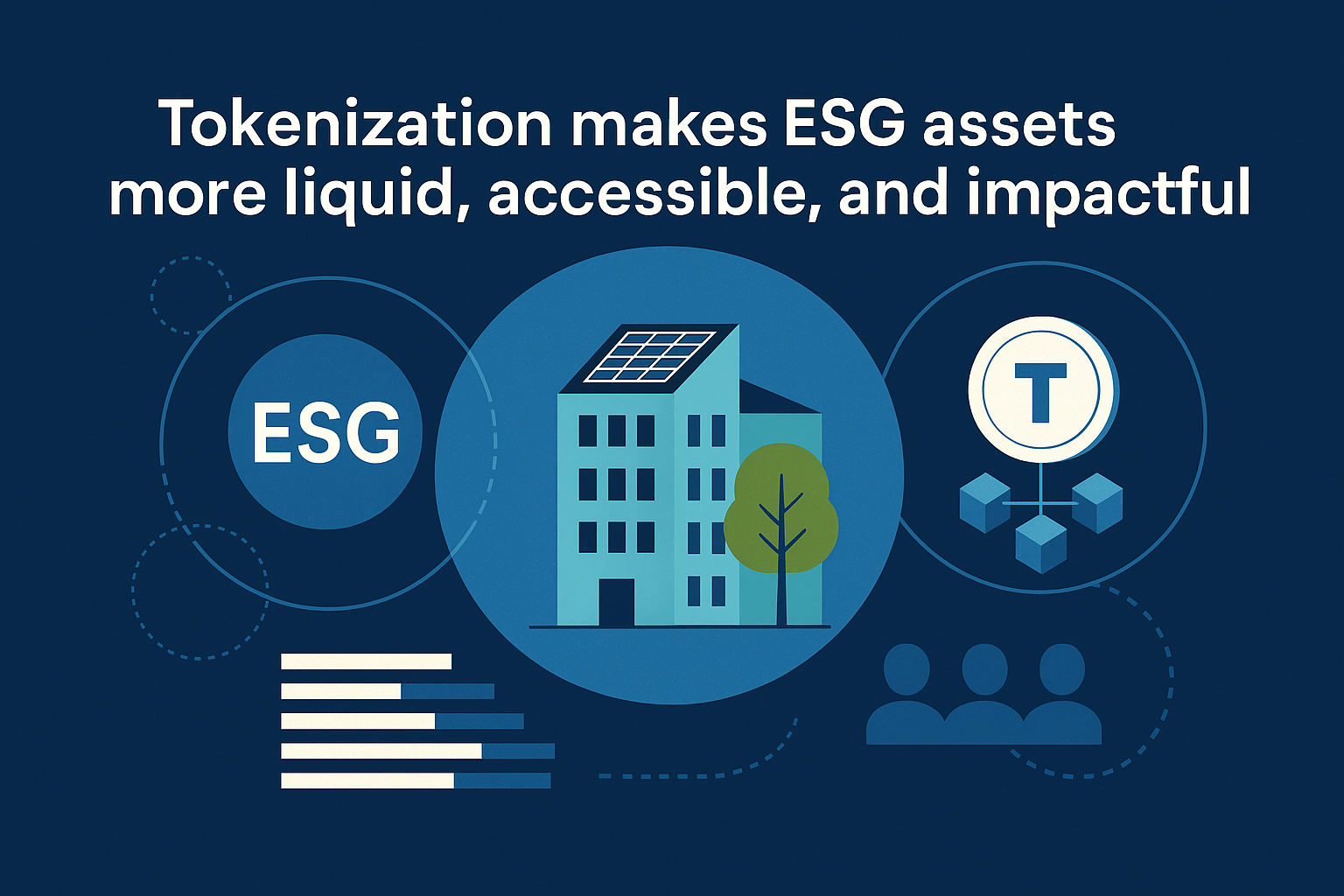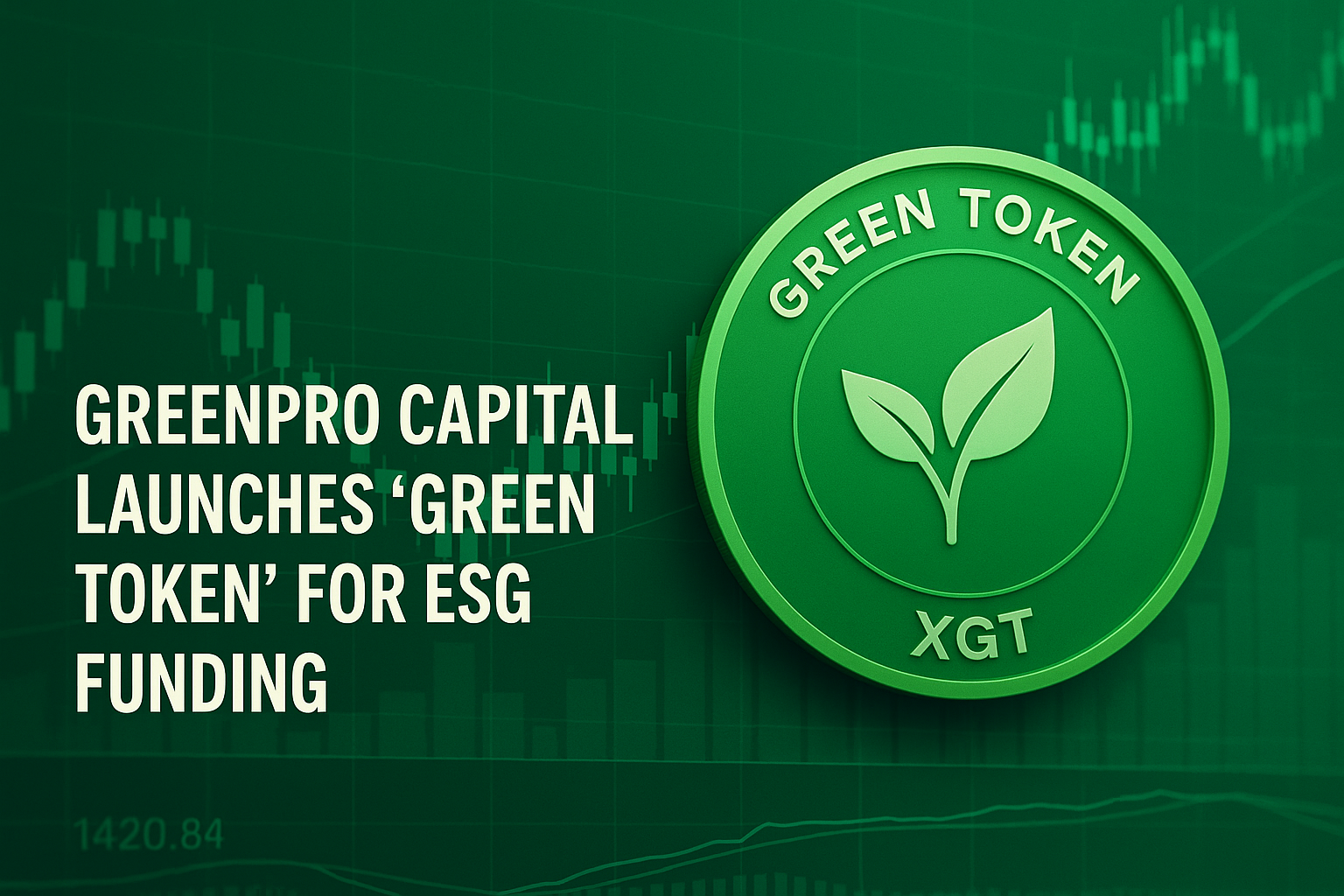Environmental, Social, and Governance (ESG) investing is undergoing a transformative shift, powered by blockchain technology. Tokenization—the process of converting real-world assets into digital tokens on a blockchain—is now at the center of a growing movement to make sustainable investments more liquid, transparent, and accessible.
What is Tokenization in the ESG Context?
Tokenization allows businesses to represent ownership of ESG-compliant assets—like green buildings, renewable energy projects, and socially responsible ventures—on the blockchain. These tokens can then be traded, fractionally owned, and verified in real-time, opening the door to broader investor participation.
This not only makes sustainable investing more democratic, but also dramatically improves capital efficiency. By lowering minimum investment thresholds and enabling 24/7 trading, tokenized ESG assets can reach a much wider investor base, including retail investors and those in emerging markets.
ESG Tokenization Unlocks New Liquidity
Traditional ESG assets, like real estate or infrastructure projects, are typically illiquid and hard to value. Tokenization solves this by allowing fractional ownership and real-time pricing. Investors no longer need to commit millions to fund a solar farm or wait years for returns. They can buy, hold, or trade slices of ESG investments instantly.
This has major implications for impact-driven investing. Nonprofits, development banks, and climate funds can now leverage blockchain to unlock capital previously trapped in rigid structures.
Ensuring Compliance Through Blockchain
A key benefit of tokenized ESG assets is built-in compliance. Smart contracts can be programmed to enforce ESG criteria, ensuring investments stay aligned with sustainability goals. Automated blockchain reporting also makes auditing easier and more transparent—an important factor for regulators and institutional investors alike.
This transparency builds trust and could help ESG tokenization overcome recent skepticism around greenwashing.
Who’s Leading the Charge?
Platforms like InvestaX are at the forefront of this revolution, offering digital marketplaces for fractionalized sustainable assets. Real estate developers focused on green construction, renewable energy startups, and ethical tech ventures are turning to tokenization to diversify their fundraising models.
In Asia, Europe, and the Middle East, governments are beginning to explore regulatory frameworks to govern ESG token issuance, ensuring that these innovations meet high standards of investor protection and environmental accountability.
Challenges to Watch
While the benefits are numerous, tokenizing ESG assets also raises questions about jurisdiction, cybersecurity, and investor rights. Legal frameworks are still evolving, and global harmonization is lacking. Moreover, education will be critical to help investors understand the risks and potential of this new asset class.
Still, the direction is clear: tokenization is not a gimmick—it’s a game changer.
The Future of ESG is Digital
We are on the cusp of a new era where sustainability meets decentralization. With tokenization, ESG investing is no longer limited to large institutions or slow-moving funds. It becomes fast, accessible, and verifiable.
As climate urgency grows and the demand for impactful investing surges, tokenized ESG assets will likely become a cornerstone of responsible finance in the decades ahead.




